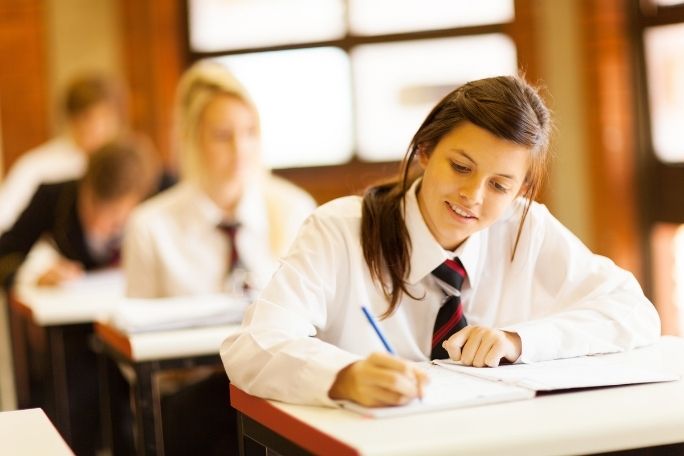Lesson summary
In this lesson, students will learn about the paper recycling loop and the impact that choosing recycled products can have. Students will complete a creative writing task based on factual stimulus material. They are asked to write a short story inspired by the Planet Ark closing the local recycle loop video. This lesson can be used as valuable practise for NAPLAN*.
Learning intentions:
Students will...
- understand why and how to close the paper recycling loop
- practice a style of narrative writing featured in the National Assessment Program’s writing test administered in years 3, 5, 7 & 9
- better understand the structure of the narrative text type
- be able to plan, draft and write a narrative text in response to a set prompt.
Lesson guides and printables
Lesson details
Curriculum mapping
Year 7 English:
- Compare the ways that language and images are used to create character, and to influence emotions and opinions in different types of texts (ACELT1621)
- Create literary texts that adapt stylistic features encountered in other texts, for example, narrative viewpoint, structure of stanzas, contrast and juxtaposition (ACELT1625)
- Plan, draft and publish imaginative, informative and persuasive texts, selecting aspects of subject matter and particular language, visual, and audio features to convey information and ideas (ACELY1725)
- Edit for meaning by removing repetition, refining ideas, reordering sentences and adding or substituting words for impact (ACELY1726)
- Consolidate a personal handwriting style that is legible, fluent and automatic and supports writing for extended periods (ACELY1727)
Year 8 English:
- Create literary texts that draw upon text structures and language features of other texts for particular purposes and effects (ACELT1632)
- Experiment with particular language features drawn from different types of texts, including combinations of language and visual choices to create new texts (ACELT1768)
- Create imaginative, informative and persuasive texts that raise issues, report events and advance opinions, using deliberate language and textual choices, and including digital elements as appropriate (ACELY1736)
- Experiment with text structures and language features to refine and clarify ideas to improve the effectiveness of students’ own texts (ACELY1810)
Year 7 Achievement Standards: Students demonstrate understanding of how the choice of language features, images and vocabulary affect meaning. Students create structured and coherent texts for a range of purposes and audiences. When creating and editing texts they demonstrate understanding of grammar, use a variety of more specialised vocabulary and accurate spelling and punctuation.
Year 8 Achievement Standards: Students understand how the selection of language features can be used for particular purposes and effects. Students create texts for different purposes, selecting language to influence audience response. When creating and editing texts to create specific effects, they take into account intended purposes and the needs and interests of audiences. They demonstrate understanding of grammar, select vocabulary for effect and use accurate spelling and punctuation.
Syllabus Outcomes: EN4-1A, EN4-6C, EN4-2A, EN4-4B
Time required: 90 min
Resources required
- Internet access
- Student Worksheet (one copy per student OR computers/tablets to access the online worksheet)
- Ripple Effects diagram printout (one per student)
- Pen and paper for story writing
- Projector and speakers
- Closing the Recycled Paper Loop – Factsheet
Additional info
Planet Ark’s National Recycling Week started in 1996 to bring a national focus to the environmental benefits of recycling. This highly regarded annual campaign continues to educate and stimulate behaviour change by promoting kerbside, industrial and community recycling initiative. It also gives people the tools to minimise waste and manage material resources responsibly at home, work and school. In partnership with Planet Ark, we have developed lessons from early learning through to year 10 to help educators bring these important topics into the classroom.
National Recycling Week is held in the second week of November each year but you can recycle all year-round with these lessons which were designed to be used at any time. Click here to find out more about National Recycling Week and the Schools Recycle Right Challenge.
Level of teacher scaffolding: Medium – oversee activities, facilitate discussion


Welcome back!
Don't have an account yet?
Log in with:
By signing up to Cool.org you consent and agree to Cool's privacy policy to
store, manage and process your personal information. To read more, please see
our privacy policy here(Opens in new tab).
Create your free Cool.org account.
Many of our resources are free, with an option to upgrade to Cool+ for premium content.
Already have an account?
Sign up with:
By signing up to Cool.org you consent and agree to Cool's privacy policy to
store, manage and process your personal information. To read more, please see
our privacy policy here(Opens in new tab).